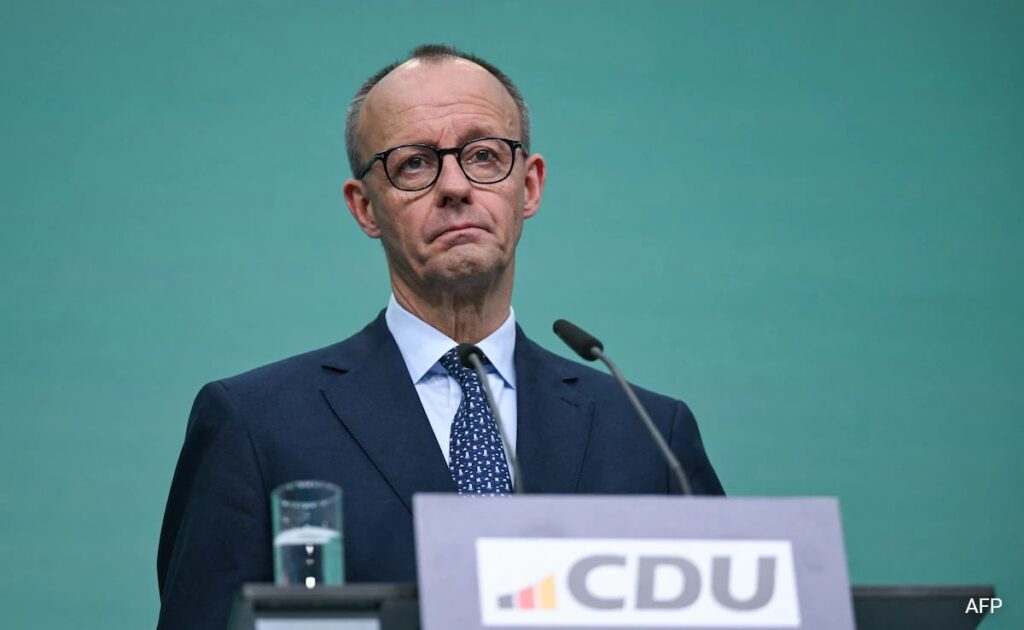
Berlin:
Germany’s Chancellor-in-waiting Friedrich Merz has vowed to prioritize European unity and security and help give Europe “real independence” from the US, as it grapples with the new Trump administration and Russia’s war on Ukraine. His remarks underscored the turmoil engulfing the transatlantic alliance since the re-election of US President Donald Trump and fears he could strike a deal with Russia over Ukraine while Kyiv and Europe just watch from the sidelines.
Declaring the US is indifferent to Europe’s fate, Friedrich Merz questioned the future of NATO in its “current form” and said Europe must quickly establish an independent defence capability.
Shift In Transatlantic Alliance
“I would never have thought that I would have to say something like this in a TV show but, after Donald Trump’s remarks last week…it is clear that this government does not care much about the fate of Europe,” Merz told German public broadcaster ARD after his conservatives won a national election.
“My absolute priority will be to strengthen Europe as quickly as possible so that, step by step, we can really achieve independence from the USA,” he added.
Such remarks from close US ally Germany- and from Merz, a passionate Atlanticist – would have been unimaginable just a couple of months ago. But the Trump administration’s “America first policy’ and suggestion to revoke the security guarantees to Europe in place since 1945 have shocked the European powers.
Referring to a NATO summit scheduled for June, Merz said he was curious to see “whether we will still be talking about NATO in its current form then or whether we will have to establish an independent European defence capability much more quickly”.
Levelling America on a par with Russia – widely viewed here as a security threat to Europe more broadly, Merz said, “We are under such massive pressure from two sides that my absolute priority now really is to create unity in Europe.”
Merz’s conservatives are looking to quickly form a government after winning a national election on Sunday but face tricky coalition talks and the prospect of an obstructive parliament after far-right and far-left parties surged.
Time is pressing for Europe’s ailing largest economy. German businesses are demanding help to remain globally competitive, society is split over migration and the new government must also deal with a confrontational Trump administration threatening tariffs as well as a hostile Russia and an assertive China.
Ukrainian Concerns
“And what we also see with the greatest concern, of course, is the attempt (by Trump) to make a deal with Russia on Ukraine over the heads of the Europeans, over the heads of Ukraine,” Merz told a press conference on Monday.
“It will come as no surprise to you when I say that this is unacceptable both for Ukraine and for Europe,” Merz said, adding it would be difficult if those who put “America First” actually made their motto “America Alone”.
Germany has been the second-biggest donor of military aid to Ukraine, after the US. Merz wants to continue that support, but, unlike France and the UK — the other two big European powers– he’s been reticent about the idea of sending soldiers to Ukraine, to back up an eventual ceasefire there.
But for now, the Germans are worried about the 35,000 American soldiers ones, stationed in their country, that make them feel safe as Trump threatens to revoke the security guarantees to Europe in place since 1945.
While France and the UK are nuclear powers, Germany is not. Even its conventional military is woefully understaffed and underequipped, so Germany fears it could be a soft target for Russia in case Moscow wanted to destabilise Europe by attacking the big three.

